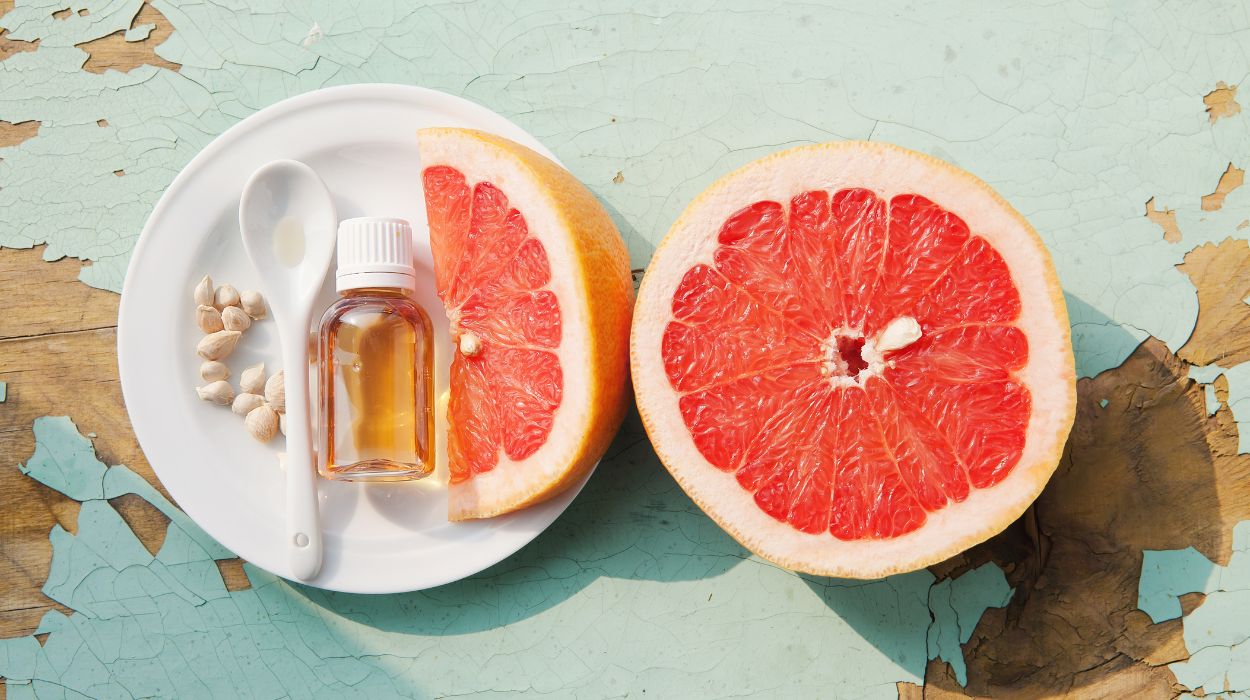 Expert's opinion
Expert's opinion
Expert's opinion
The article is a subjective view on this topic written by writers specializing in medical writing.
It may reflect on a personal journey surrounding struggles with an illness or medical condition, involve product comparisons, diet considerations, or other health-related opinions.
Although the view is entirely that of the writer, it is based on academic experiences and scientific research they have conducted; it is fact-checked by a team of degreed medical experts, and validated by sources attached to the article.
The numbers in parenthesis (1,2,3) will take you to clickable links to related scientific papers.
Does CBD Interact With Medications 2024? CBD-Drug Interactions & Side Effects

There is a huge surge in popularity for Cannabis sativa, as CBD is more commonly used in recent times. All thanks to the studies that proved the benefits of this natural healer, more and more people want to try CBD products to ease the symptoms of their health issues such as chronic pain, insomnia, and anxiety.
You should talk to your doctor about all the supplements, vitamins, prescription medications, and over-the-counter medications that you take regularly. In this read, you will know about all the possible drug interactions that CBD can have.
Does CBD Interact With Medications?
Although CBD has gained the best reputation lately, patients with medical conditions who are on prescription medication should be aware of the potential drug interactions between multiple medications and CBD. Many studies show that CBD is safe and has very few side effects, but CBD does have the potential to interact with other medications. Before starting on CBD, one should inform and take advice from their healthcare providers to avoid any complications whatsoever.
How Is Cytochrome P450 Related To CBD And Medications?
This group of enzymes is responsible for the metabolism of cannabidiol (CBD), and an important enzyme CYP3A4 of the same family does the task. However, CBD also interferes with this enzyme. Moreover, this enzyme is responsible for metabolizing 60% of the prescribed medications as well.
But, if CBD inhibits CYP34A, then it cannot work effectively in breaking down the medications in our system. This can also work in reverse, as many medications can also inhibit CYP3A4. When you take medications while you are also on CBD, your system fails to process the CBD efficiently.
When our body metabolizes medication slowly, it means there is more medication than is required in the body despite sticking to a normal dose. Increased dosage of medication in the body can also increase the effects, which include harmful unwanted side effects.
Some substances can accelerate the work of the group of enzymes called CYP450. Then our body will metabolize the medicines too quickly because there are other substances that can activate these enzymes and there will not be enough medication in the body to address the health condition.
Drug Metabolism And Enzyme Cytochrome P450
When a medication or any other substance enters our body, our system metabolizes or breaks it down. Drug metabolism happens in various parts of the system, but the larger part of this is done by the liver.
A group of enzymes called cytochrome P450 does the major work such as the conversion of foreign substances to eliminate them easily from the body. However, some medications affect CYP450, by speeding up or slowing the process of drug metabolism.
This difference in metabolism can make a difference in the way our system processes medicines or supplements. This causes drug interaction in our bodies.
Is CBD Safe To Use With Other Medications?
Before using CBD as an add-on therapy to relieve symptoms of certain health conditions, take medical advice from your doctor first. They should determine the type of CBD product, dosage, and schedule so that it does not affect your medications and is completely safe.
In some cases, doctors will monitor the plasma levels of some specific medications that you are on. Stopping the usage of your regular medicines to try CBD is not advisable unless you are told to do so by a doctor.
Ingesting CBD through capsules, drops, vapes or edibles is not the only option, as you can also opt for CBD topicals, creams, lotions, and slaves. Unlike edibles, CBD oils, vaping solutions, and topicals do not enter the bloodstream provided they are not transdermal solutions.
How CBD Interacts With Medications?
Research by two professors from Pennsylvania State Medical University created a list of prescription cbd drug interactions. They looked for cannabinoids in the CBD products that affect how fast our body breaks down other drugs or competes with the drug for that same target.
They used products containing CBD alone and products that contained delta 9 tetrahydrocannabinol (THC) accessed four cannabinoids and evaluated four cannabinoids. They looked for the enzymes that metabolize THC and CBD in our body and compared them with the prescribing information for similar medicines to determine any drug overlap.
The list of 57 medications that cause drug interactions is available on the Pennsylvania State website. This includes oral contraceptives, opioids used for pain, sedatives, and thyroid hormone medicines. CBD can raise the level of blood thinner, coumadin, and also certain medicines in blood by following the exact mechanism which is followed by grapefruit juice.
This list of medicines falls under a narrow therapeutic index, which means that there is little margin between a therapeutic drug dose and a toxic drug dose. This little margin makes these interactions a medical concern by increasing the drug action. The researchers also published a list of 139 medicines that may interact with cannabidiol but with low risk. This list will be updated from time to time with new evidence.
Many studies are going on to determine potential interactions between prescription drugs and CBD. But, so far here are a few things to look for if you are considering the usage of CBD.
Avoid CBD if your medications contain grapefruit in them, look for a grapefruit warning on the label. This grapefruit warning on medicines means that people should avoid consuming grapefruits while taking these medicines.
According to the FDA[1], consuming grapefruits while on these medicines can lead to an increased concentration of medicine in our bloodstream and can lead to overdose or lead to adverse effects. Now that we know that both CBD and grapefruit juice hinder drug metabolism and so any medicine that cannot be taken with grapefruit juice should also be avoided with CBD.

Drug & CBD Interactions – What Drugs Should Not Be Taken With CBD?
Grapefruit warning is common in many medications, and not all medications that fall under this category require avoidance of grapefruit. So before pondering on where to buy CBD oil or grapefruit medicines, patients should think about seeking medical advice before starting on CBD when they are on these medications.
- Blood thinners
- Anticancer medications
- Antibiotics and antimicrobials
- Antihistamines
- Antiepileptic drugs, valproic acid
- Antihypertensive medicines
- Cholesterol medications
- Corticosteroids
- Medications for erectile dysfunction
- Gastrointestinal medications used to treat GERD, nausea
- Heart rhythm medications
- Immunosuppressants
- Pain killers
- Anti-anxiety, antidepressants, and drugs used to treat mood disorders
- Prostate medicines
What Research Has To Say About CBD Usage Along With Medications?
Medical CBD was first approved for hard-to-treat epilepsy, and CBD works best for Dravet syndrome and Lennox-Gastaut syndrome. Hence, the FDA approved a CBD drug called Epidiolex[2] for the same reason.
Many clinical trials were conducted, and one study[3] on 25 children in which 13 kids were given both CBD and clobazam. An elevated level of clobazam was found in these children. Researchers report that taking both clobazam and CBD is safe, however, it is recommended to monitor the levels of medications during the treatment.
In another study[4] 42 children and 39 adults taking anti-epileptic drugs were also given epidiolex and the dosage was increased every 2 weeks. They checked for serum levels of the anti-epileptic drug in subjects in due course. Serum levels stayed within the accepted range for most of them. However, two medicines, desmethyl clobazam and clobazam, caused serum levels out of the therapeutic range.
Safety & Side Effects Of Taking CBD With Other Medications

Under the careful supervision of the doctor, you can safely use medications with CBD, even the ones with grapefruit warnings. Your doctor should monitor the plasma serum levels of the medication that you are put on. They may also look for liver functioning. So, if you are taking CBD and medications, keep an eye out for potential changes in how they are affecting you.
If the dose of CBD or the medication is increased you may experience some side effects such as drowsiness, nausea, sedation and decreased effects of medicines such as breakthrough seizures. Some common side effects when you use CBD are fatigue, weight fluctuations, changes in appetite, and diarrhea.
The use of CBD may increase the risk of cardiac issues, and changes in blood pressure and heart rhythm may also occur with medication and CBD use that have similar effects on our cardiovascular system.
Final Words
CBD products should not be taken without consulting the doctor while you are on other medications. Do not stop using medicines to try CBD, you may be risking your life. Medications that come with grapefruit warnings should be taken carefully. Simply put, always seek professional advice before using CBD and other prescription drugs simultaneously.
+ 4 sources
Health Canal avoids using tertiary references. We have strict sourcing guidelines and rely on peer-reviewed studies, academic researches from medical associations and institutions. To ensure the accuracy of articles in Health Canal, you can read more about the editorial process here
- Office (2021). Grapefruit juice can affect how well some medicines work. [online] U.S. Food and Drug Administration. Available at: https://www.fda.gov/consumers/consumer-updates/grapefruit-juice-and-some-drugs-dont-mix.
- Renad Abu-Sawwa, Scutt, B. and Park, Y. (2020). Emerging Use of Epidiolex (Cannabidiol) in Epilepsy. The journal of pediatric pharmacology and therapeutics, [online] 25(6), pp.485–499. doi:https://doi.org/10.5863/1551-6776-25.6.485.
- Geffrey, A.L., Pollack, S.F., Bruno, P. and Thiele, E.A. (2015). Drug-drug interaction between clobazam and cannabidiol in children with refractory epilepsy. Epilepsia, [online] 56(8), pp.1246–1251. doi:https://doi.org/10.1111/epi.13060.
- Chang, B.S. (2018). Cannabidiol and Serum Antiepileptic Drug Levels: The ABCs of CBD with AEDs. Epilepsy Currents, [online] 18(1), pp.33–34. doi:https://doi.org/10.5698/1535-7597.18.1.33.



